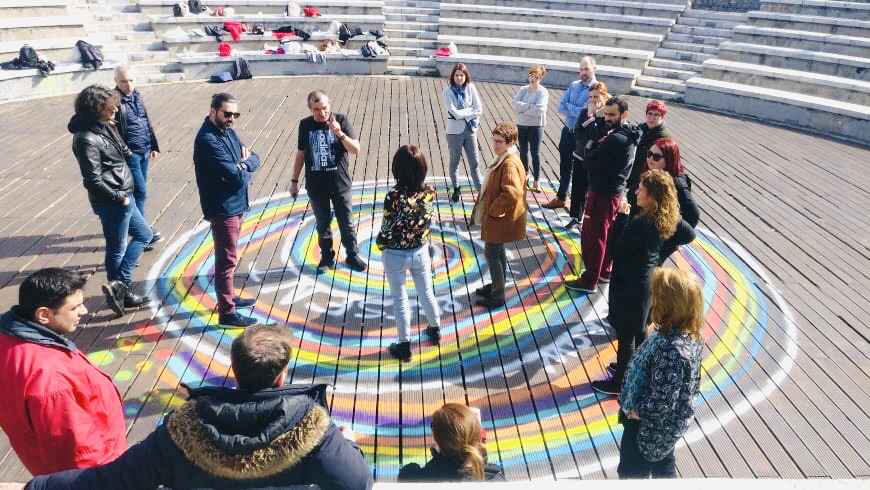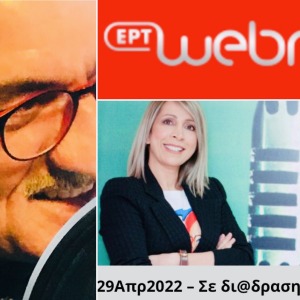
We live at challenging times regarding employment. Actually, we have lived through a challenging decade in this small, but so nuclear part of the world.
At Hyphen SA, the company I co-own, we have massively invested in skills-for-the-future-of-work development. We serve the ideal that “what we can’t find, we create”, and we research and train endlessly. We profoundly believe in the talent Greece as a country has to offer and we totally believe in the potential of youth. We invest in youth.
However, it seems that the burden of past, post-ottoman habits is stubborn. There is so much dependence on dry accreditation, the “paper”, the exams. Parents seem to brainwash their children into so backward thinking regarding pre-requisites and prospects, that actually substance is overpassed.
Over this past decade, we may have been one of the few companies with regular vacancies advertised in Greece. It has been quite disappointing to see that specifically Greek candidates keep failing during the first shortlisting process, and with a policy against discrimination, we tend to employ people from other countries who successfully respond to our vacancies and do not mind to move to Greece, especially if they come from an EU member State. The pre-dominant element in Greek applications is a list of degrees, accreditation awards, certificates, post-graduate degrees, even PhDs, but with a highly failing overall profile and critical mistakes that knock those applications out of the process from the beginning. But let’s look at some frequent particularities of this phenomenon:
• With due respect to the need, even despair, of candidates experiencing long-term unemployment, it is totally inappropriate to apply for a job that is clearly out of one’s education and experience “just in case something comes up”. Our vacancies are so technical and particular, being a company offering publishing, editorial, creative and educational services. Therefore, when, for example, a vacancy for an English Language Teaching book editor is advertised, requiring a degree in English Literature and teaching experience, it is a waste of everybody’s time to receive an application from a Civil Engineer who obviously doesn’t even know what ELT stands for, presenting work experience related with construction projects
• Editorial services is a highly technical profession requiring extensive linguistic skills and mainly an eye for detail. When a vacancy requests a list of documents to be included in a portfolio, along with a specific type of CV, to receive a Microsoft Word CV template, other than the type of CV requested, completed with a list of Cambridge certificates and other University degrees, and no portfolio, only shows that the candidate did not read or understand the vacancy ad content. What is even worse is that they did read and understand, but decided that it was not important enough for their time, given the certificates and degrees they exhibit
• Presentation: How can an application for an Editorial job vacancy can be assessed, if it is full of typos and errors! The actual job is about text correction and adaptation. It is quite thoughtless not to take into account the actual nature of the job advertised. I personally have happened to overlook mistakes in CVs and applications for vacancies in the Sales sector, for example. But for an editorial job? Recently we received a CV that apart from text inconsistencies and errors, its writer, the candidate, had left the template creator’s instructions intact, i.e. “here you list your…”
These and so many other “inadequacies” that actually, unfortunately, are not perceived as inadequacies among the average population in Greece. As a culture, it affects young candidates’ prospects, especially in a highly competitive environment with free mobility of talent, like the EU. It also affects people’s psychology collectively, as on-going disappointment and failure suppresses self-esteem. But history has shown that true progress comes among those who are open to change, successfully manipulating narcissism and insecurities that block each person’s availability to change. Learning is change and to learn we have to embrace change. Greek youth has to unlearn that passport to professional success is on one hand nepotism and acquaintances and on the other hand superficial impressions based on long papyri of certificates, diplomas and degrees that do not correspond to true hard and soft skills. The Global Economy is a hard field to compete in, and when market share availability is tight, the only viable and sustainable way is the true way of substance, realism and adult attitude.



